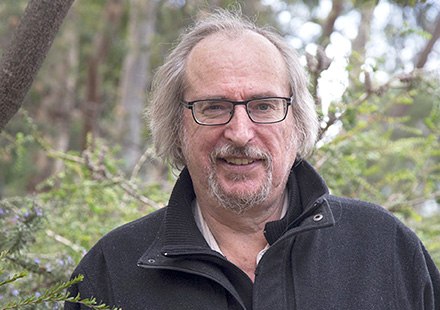A scientific paper that was the basis of an opinion piece by Professor James Kirkpatrick claiming that timber harvesting makes forests more flammable has been withdrawn from academic publication because it contains errors. Source: Philip Hopkins
The peer-reviewed paper, written by Professor Kirkpatrick, Suyanti Winoto-Lewin and Jenny Sanger from the University of Tasmania’s Discipline of Geography and Spatial Sciences, has been retracted from the MDPI journal Fire, MDPI (Multidisciplinary Digital Publishing Australia) said in a statement.
The paper formed part of the platform of an opinion article by Professor Kirkpatrick published in The Age and Sydney Morning Herald newspapers in May. Co-authors of the opinion piece were Dr Sanger, Dr Chris Taylor, Dr Robert Kooyman, Dr Phil Zylstra and Professor James Watson.
Following this, Dr Zylstra and the other scientists, but not Professor Kirkpatrick, published a letter to the editor reiterating these claims, that was widely published in Tasmanian and Victorian country newspapers.
They strongly attacked a peer-reviewed paper on the role of timber harvesting and fire led by Peter Attiwill, a retired Associate Professor from the School of Botany at Melbourne University.
MDPI said the Tasmanian University authors were informed of some errors in the categorisation of forest types by a colleague. The major error was the incorrect inclusion of a category of plantation from a publicly available vegetation type layer.
“There were also other sites which were incorrectly categorized. The authors reclassified or removed the sites that were obviously incorrect, added new randomly located sites to compensate for excluded sites and added more site pairs,” MDPI said.
“The data were then checked by an independent colleague, an expert in the forest type, who was able to check each identification. The results of analyses of the new data set were sufficiently different to those of the original paper to make it inappropriate to make minor corrections.”
MDPI said during the reanalysis, a close examination of the data indicated that the outcomes were highly sensitive to variation in fire intensity in a low number of sites. This indicated the need for a larger data set and complementary analyses using GIS (Geographic Information System) techniques.
“This paper is therefore retracted and shall be marked accordingly. The Fire editorial office (and authors) apologise to the readers of Fire. The paper is retracted to ensure the addition of only high-quality scientific works to the field of scholarly communication,” MDPI said.
“MDPI is a member of the Committee on Public Ethics (COPE) and takes very seriously the responsibility to enforce strict ethical policies and standards.”
Professor Kirkpatrick and co-authors in their opinion article, displayed prominently in the two metropolitan newspapers, claimed that four peer-reviewed scientific studies from four institutions in six years showed clear evidence that logging makes forests more flammable.
They said the logging industry funded a contradictory piece on fire behaviour in 2014 “using members of a group called the Institute of Foresters of Australia”. The paper, led by Professor Attiwill with co-authors “employed by the logging industry”, denied the role of timber harvesting in fire.
In a reply only published online, Professor Attiwill said Kirkpatrick had tried to belittle not only the science of Professor Attiwill’s colleagues, but also their academic standing.
Professor Attiwill emphasised that their paper, published in the international journal Conservation Letters, was a collaboration between experts in forest science and forest fire management.
“I am not a member of the Institute of Foresters of Australia; some of my co-authors may well be. Our research has no association whatsoever with the institute,” Professor Attiwill said.
“Our backgrounds are universities, CSIRO bushfire research and state forest management authorities from Western Australia, Tasmania and Victoria.”







